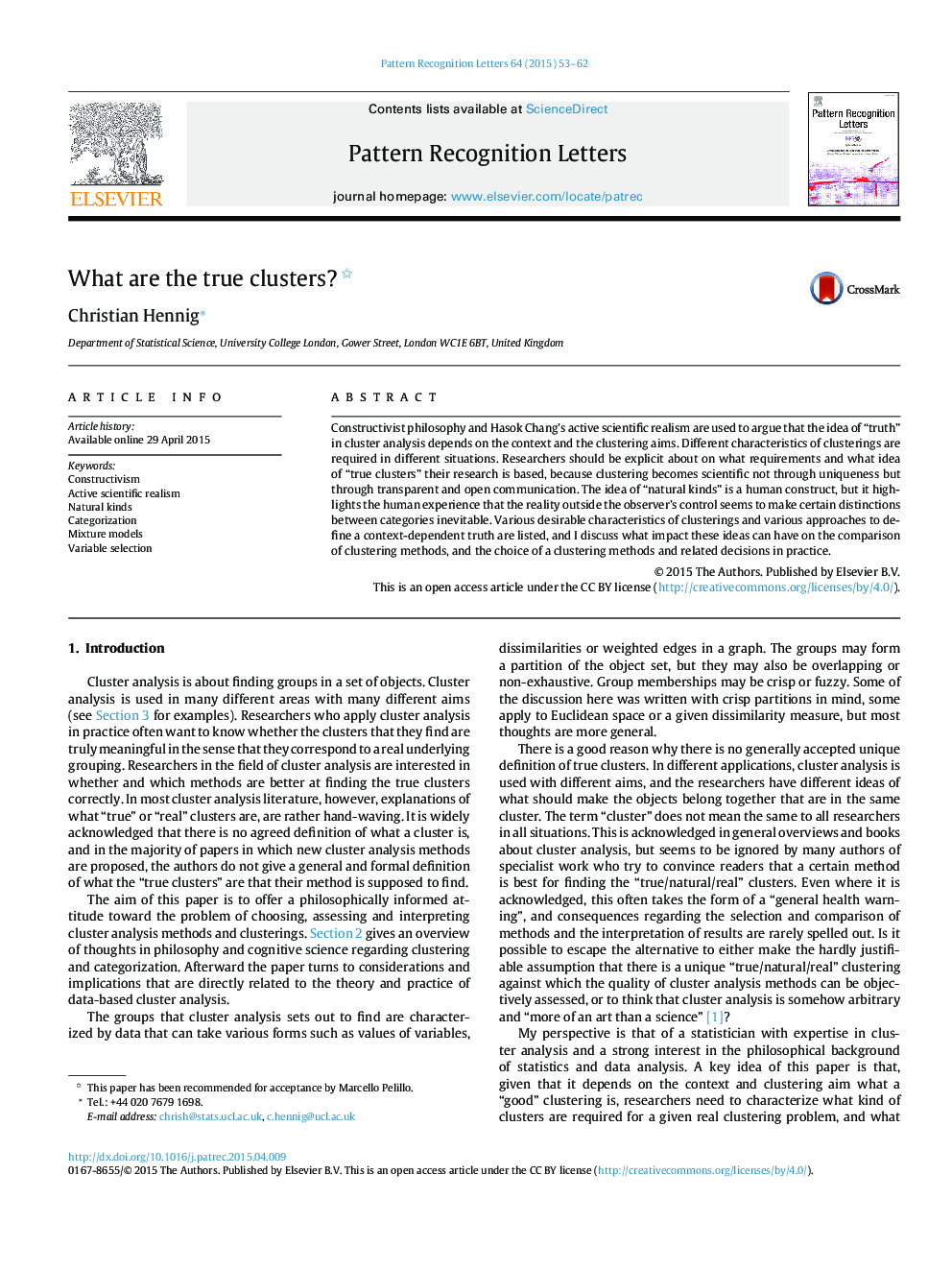| Article ID | Journal | Published Year | Pages | File Type |
|---|---|---|---|---|
| 6941189 | Pattern Recognition Letters | 2015 | 10 Pages |
Abstract
Constructivist philosophy and Hasok Chang's active scientific realism are used to argue that the idea of “truth” in cluster analysis depends on the context and the clustering aims. Different characteristics of clusterings are required in different situations. Researchers should be explicit about on what requirements and what idea of “true clusters” their research is based, because clustering becomes scientific not through uniqueness but through transparent and open communication. The idea of “natural kinds” is a human construct, but it highlights the human experience that the reality outside the observer's control seems to make certain distinctions between categories inevitable. Various desirable characteristics of clusterings and various approaches to define a context-dependent truth are listed, and I discuss what impact these ideas can have on the comparison of clustering methods, and the choice of a clustering methods and related decisions in practice.
Related Topics
Physical Sciences and Engineering
Computer Science
Computer Vision and Pattern Recognition
Authors
Christian Hennig,
